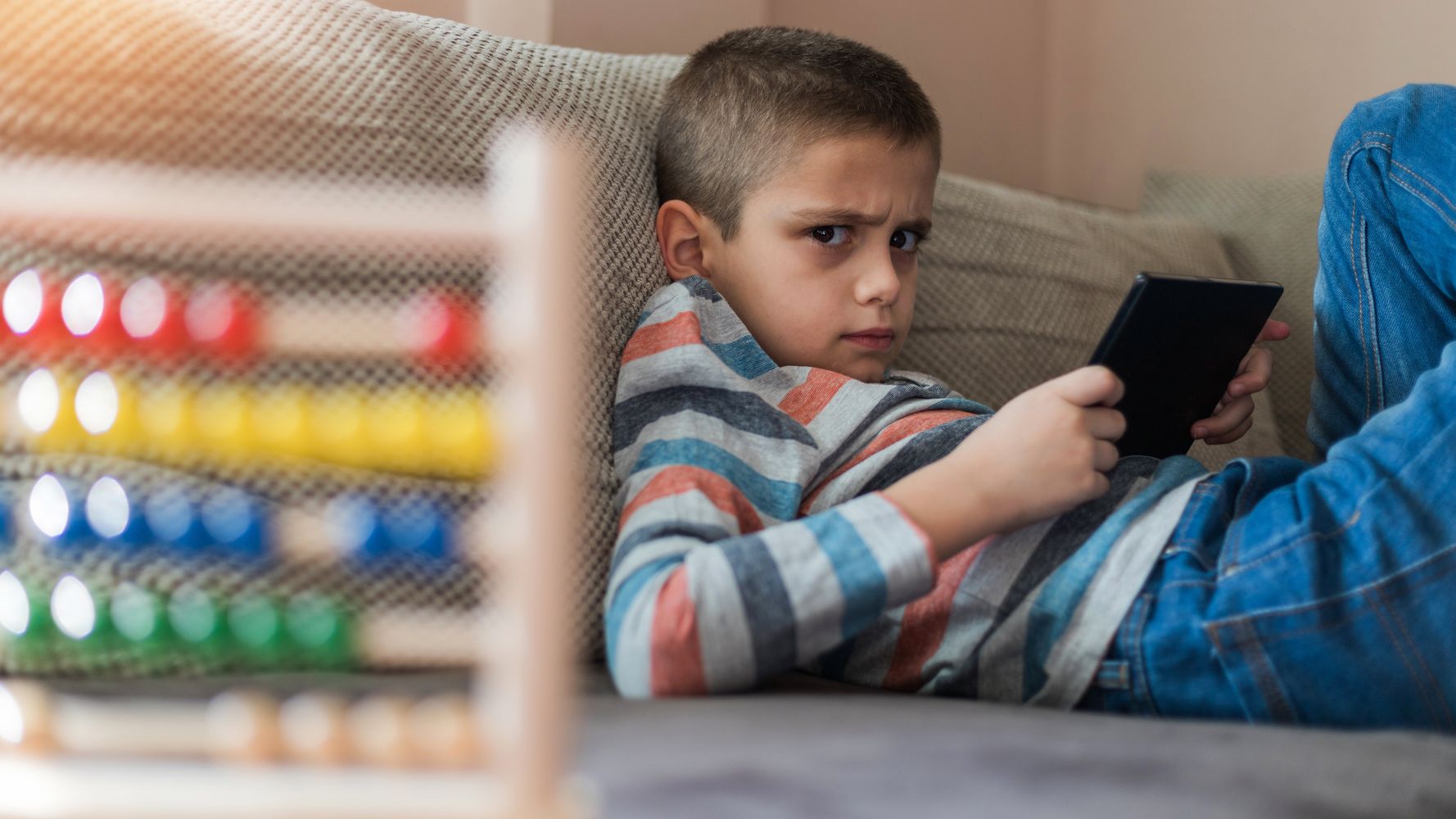[ad_1]

There’s no doubt the coronavirus pandemic has impacted our behaviors and mental health in a variety of telling ways. Kids are clearly feeling the stress of the moment; some are becoming clingier and others are regressing in various behaviors, from bed-wetting to sleep struggles. One of the more disturbing and frustrating behavioral changes might also be anger.
Some kids might have been prone to tantrums or other aggressive behavior pre-lockdown, while others might be experiencing a newfound inability to self-regulate. So what’s “normal” among kids right now?
“Yes, kids are angry,” said Becky Kennedy, a New York-based clinical psychologist who also has an action-backed Instagram account @drbeckyathome. “They are angry that their worlds have been turned upside down; they are angry that they can’t see their friends and attend real school; they are angry that their parents are around more than ever but are stressed and unavailable most of the time. None of this is a parent’s fault and yet, still, children have the right to be angry about all of these things.”
So how do you go about addressing it, especially when you’re so drained from your working/parenting/teacher/camp counselor role? Kennedy and two other experts offered HuffPost insights about what’s going on and what you can do about it.
First, Understand It
The experts all reiterated that it’s important to be in touch with both your own and your child’s emotions. As Michelle Borba, an author and educational psychologist based in Palm Springs, California, told the “Today Show” in mid-May, “If you name it, it starts to reduce it.”
Instead of categorizing behavior by what’s “normal” and “abnormal,” focus on the connection with your child and what’s happening at that moment, said Kennedy, who holds a doctorate in clinical psychology. The first step to change is awareness, echoed Borba.
After all, kids are stressed. Before the pandemic, one-third of kids suffered from stress. As Borba told HuffPost, “A crisis never improves mental health.”
Underneath the anger is usually a slew of emotions, in particular worry, hurt, fear, sadness, loss and confusion. “What’s critical to helping anyone with anger is separating angry behavior or remarks from the underlying feelings. This, over time, helps a child differentiate feelings from behavior and helps a child learn to pause in reaction to one of these more vulnerable feelings rather than immediately convert the energy of the feeling into anger that explodes out of us,” Kennedy said.
What To Say and Do
The good news is that we can help our children unwind their anger and understand it. While you can help your child mid-outburst, better emotion regulation skills are built while they’re not under stress, so try post-freakout.
If you’re still quarantining, Kennedy suggested creating lists with your family of “Things That Have Changed” (inability to see friends, no school, etc.) and “Things That Have Stayed The Same” (breakfast is always served at 7 a.m., for instance). Respond to your kid’s lists by explaining the emotion behind what they take note of. Say, “Yea, it makes sense you’re sad, you love your friends and can’t see them,” or “I know you want to see Mommy more than you do. I am home but I am also working and that must be so frustrating to you. I know you wish I could be with you all the time; it’s true, I can’t, but I do understand that and you’re allowed to be mad about it.”
And if you have to deal with an explosive moment? It’s important to label the angry behavior, use your words to limit it, and then turn your focus to the underlying feelings, Kennedy said. As you do this, you’re showing your kid that it’s possible to separate feelings and behavior, which is what regulation is all about.
A possible script from Kennedy:
“‘I will not let you call me names. We care deeply about everyone’s wellness in our family, and name-calling is hurtful to others.’ Say this firmly but not scarily. Then take a deep breath and shift your tone to something warmer and slower. ‘Having said that, you must be really upset about lots of things to be reacting to me that way. And I care deeply about the things you’re upset about, want to know more about them, and want to understand them with you.’ You may also have to say, ‘I won’t continue to tolerate your screaming at me. I will allow all the anger, but we have to figure out another way. You can scream these words outside or you can write them down and I’ll read it later or you can show me how big the feelings are with your arms or by stomping it out.’”
One of the key components of responding well is how you look at your child while you say this. “Try to gaze at your child like he is a good kid having a hard time, not a bad kid doing bad things,” Kennedy said. “Kids will take in this look before any of your words, and kids respond to the version of themselves we reflect.”
Then, post-freak out, take time to reflect. After all, everyone ― kids and parents alike ― has bad days. Take breaths. If you lose it at your kids, you’re human. If you can, find a calm moment and simply reiterate to your child that ― no matter the words that are said and the feelings that are felt ― you love them and nothing could change that.
Things to consider
Both Borba and Alexandra Hamlet, a New York-based clinical psychologist in the Mood Disorders Center at the Child Mind Institute, reiterated the importance of behavior change ― both during uncertain times like the one we’re in and always ― as a sign that bigger issues could be at play.
You know your child and your child’s behavioral patterns best, so look for obvious shifts. Consider three factors in particular when figuring out what’s new and possibly coronavirus-related and what’s not, including the frequency, intensity and duration of the outbursts.
“It’s just thinking about the level at which the intensity, the duration, and the frequency of the behavior that gets in the way of living, of functioning, and functioning in a way that you as a human, or as an individual really values,” Hamlet said.
Borba suggested using the “too index” to help you determine what’s what. Is your child too different from his or her typical self? Did tantrums previously last two minutes and now they last 30 minutes? Was your kid previously just irritable and now he or she is full of rage? You’ve tried too many things to help and nothing works and it’s lasted every day for two weeks?
“Any one issue can be an indicator that you need to get help,” Borba said. Be mindful of changes that happen in your child as things start opening up. If the behavior is continuing then it could be time to get some help.
Other resources/articles:
Coping Skills For Kids offers activities for kids and resources for parents, too.
The Child Mind Institute is a great resource for understanding kids’ mental health.
[ad_2]
Source link

